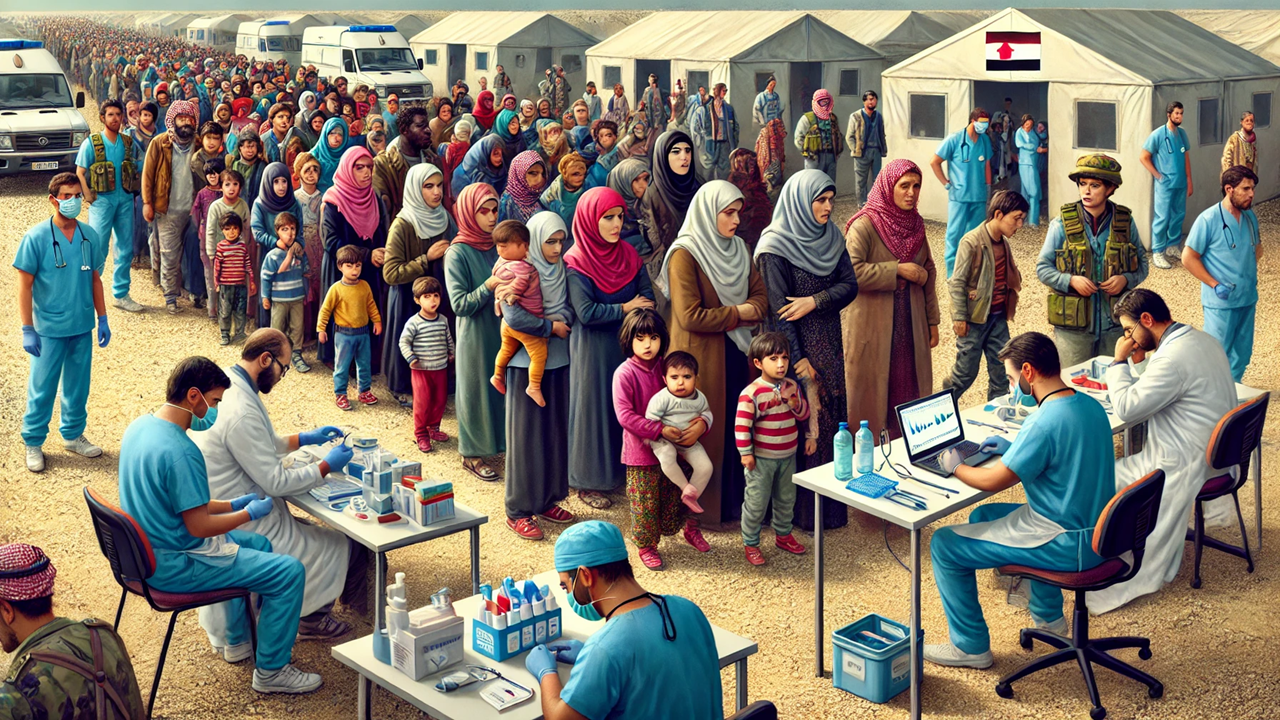Kenya has made considerable progress in developing a policy framework aimed at promoting self-reliance among refugees and host communities. However, significant challenges remain in improving their access to services and overall welfare. This is according to the newly released report, Building Evidence to Enhance the Welfare of Refugees and Host Communities in Kenya, which stresses the need to address the immediate, mid-term, and long-term needs of these populations.
As the fifth largest refugee-hosting country in Africa and the thirteenth globally, Kenya is home to 774,000 registered refugees and asylum seekers, primarily from neighboring Somalia, South Sudan, and Ethiopia. The Dadaab and Kakuma refugee camps, established in the early 1990s, are among the world's largest and have become integral to Kenya's social, cultural, and economic landscape. The report emphasizes the importance of understanding the socioeconomic conditions, needs, and potential of both refugees and host communities to develop effective programs and policies.
The report, which is based on the Kenya Longitudinal Socioeconomic Study of Refugees and Host Communities (K-LSRH), highlights the need to enhance service provision, self-reliance, and resilience as part of a broader strategy to address spatial inequalities within Kenya. Conducted between June 2022 and 2023, K-LSRH is the first nationally comparable survey of registered refugees and hosts in Kenya and offers detailed insights into the living conditions and challenges faced by both groups. This survey aligns with the Kenyan government's policy shift from refugee camps to integrated settlements.
Policy Advancements: Kenya has made significant strides, including the adoption of the 2021 Refugee Act, but further efforts are needed to streamline procedures for work permits, movement passes, and banking access to promote greater self-reliance among refugees.
Employment Challenges: Job scarcity remains a major obstacle, particularly within refugee camps. The report suggests that expanding access to finance, supporting microbusinesses, and establishing market linkages can enhance self-employment ventures. Additionally, generating formal employment opportunities in urban settings could provide a viable solution.
Spatial Inequalities: The report calls for targeted, area-based development initiatives to address spatial disparities in regions where refugee camps and settlements are located, such as Turkana and Garissa. These initiatives should involve local stakeholders to ensure that interventions meet specific community needs.
Resilience Building: Strengthening household resilience to socioeconomic and environmental shocks is essential for sustained self-reliance. The report advocates for shock-responsive social protection and psychosocial support to help vulnerable households withstand crises.
Education Access: Addressing barriers to education, such as cost and language challenges, is crucial for improving the prospects of children from both refugee and host communities. The report recommends accelerated education programs for older learners and targeted interventions for unenrolled children.
Data Collection and Monitoring: The report underscores the importance of timely, high-quality data on refugees and host communities to inform policy decisions. Continued efforts to improve data coverage, accuracy, and comparability are essential for monitoring progress.
Legal and Policy Framework: The report calls for the continued improvement of legal and policy frameworks to ensure the socioeconomic integration of refugees. Harmonizing national and sub-national laws and establishing a robust monitoring and evaluation framework are key to fostering a cohesive legal environment.
The report, prepared under the Kenya Analytical Program on Forced Displacement (KAP-FD), is a collaborative effort by the World Bank, UNHCR, and the Center for Effective Global Action (CEGA) at the University of California, Berkeley. It is funded by the Government of the Netherlands through the Partnership for Improving Prospects for Host Communities and Forcibly Displaced Persons.
The findings highlight the immense potential within both refugee and host communities in Kenya, suggesting that with the right support, these populations can achieve long-term resilience.











